This section is for paid subscribers only. Our subscription is only $3700/- for one full year.
You get unlimited access to all paid section and features on the website with this subscription.
Subscribe to read full article
This section is for paid subscribers only. Our subscription is only $37/- for one full year.
You get unlimited access to all paid section and features on the website with this subscription.
Not ready for a full subscription?
You can access this article for $2, and have it saved to your account for one year.
- Release Date1967
- GenreAdventure, Drama, Romance, Family
- FormatColor
- LanguageHindi
- Run Time152
- Length4751.53 meters
- Number of Reels18
- Gauge35mm
- Censor RatingU
- Censor Certificate NumberU-51244-MUM
- Certificate Date30/06/1967
- Shooting LocationRajkamal Studios, Filmistan Studios, Rooptara Studios, Ranjit Studios, Mehboob Studios
The jet age has brought the countries of the world so much nearer to each other that the pain and tragedy of any nation sits heavy on the conscience of the entire mankind. What happened in the Japanese city of Hiroshima many years ago, when atomic death rained from the skies, provoked and inspired thousands of writers all over the world to write stories about the horrors of nuclear war and the need for the entire human race to get together to fight collectively this man-made menace.
One such story is 'Aman', bringing to the screen in vivid details the long lingering evil effects of the Atom Bomb and one man's vain but glorious battle to undo with his healing hand the injury inflicted upon a city's population by the nuclear bombs and their deadly radioactive rays.
"Aman" (Peace) is the story of a man of peace named Gautam, a doctor by profession. He was just a child when his parents, along with many other Indians, left Burma to flee to India, in the concluding days of the Second World War. The refugee caravan was bombed on the way and Gautam lost his mother in that air raid. The shock and memory of his mother's death in a war not of her making left an indelible impression on Gautam's mind.
Gautam's father set up practice a lawyer in New Delhi and sent his son to study in London in the field of higher medicine. In London Gautam qualified as a doctor, but he never really wanted to earn big money from his knowledge. His heart was set on a distant goal and, one day, he went to meet Lord Bertrand Russell to seek his blessings. Young Gautam had made up his mind to go to Japan and serve the victims of nuclear radiation in that country.
When Gautam returned to New Delhi to meet his father, the old man was happy that his son had returned to become a big doctor his own country. But he was taken aback to learn that Gautam did not to intend to practice in India; he wanted to go to Japan. Gautam's father argued in vain that there was no dearth of qualified and highly specialised doctors in Japan, but Gautam answered adamantly that today the sorrow of any one country was the sorrow of entre mankind and the problem of radiation victims of the atom bomb was one that could confront any nation at any time, be it Japan or India. His father in his wisdom understood the selflessness and idealism of his son and gave him his consent to proceed to Japan.
In the Japanese city of Hiroshima, Dr. Gautam secured a position in the Michiko Memorial Hospital. There he saw the patients; patients with incurable cancer of the blood, patients who had lost their eyesight, patients most of whom could be described as the Living Dead, patiently or impatiently awaiting their doom There was no cure for them, because they had been touched by the lethal radioactive rays of the atom bomb which not only doomed them but also generations to come.
Dr. Gautam was overwhelmed by what he saw; it was beyond anything he could have imagined. The reality was more horrible than any fiction. With a single minded determination, he set about the task of finding a cure for these unfortunate patients of a man-made malady.
In the course of his stay in Japan, Dr. Gautam met Minoda, the beautiful daughter of founder of the hospital. In a temple, they both found that their destinies were interlined. A chance meeting was followed by meeting at her residence where her father introduced to his daughter the young doctor from India. Dr. Gautam learnt that like him, Minoda too had lost her mother in the second world war; a victim of the Atom Bomb, and, to forget the memory of Hiroshima's disaster, Minoda had gone to India and spent her early adolescence in Shantiniketan.
Dr. Gautam and Minoda soon developed a quiet friendship which matured into intense love. When Dr. Gautam's round-the-clock work in the hospital tired him out and he became a victim of fatigue. On medical advice Minoda took him round her country on a trip ofrest and holiday. She showed him the Chuzenji lake, the cities of Japan and the Nara Deer Park.
Dr. Gautam, now a popular figure with patients of the hospital, discovers a medicine which promises a major breakthrough in the search for a cure for the victims of the atomic radiation. The news of his discovery is flashed in every newspaper in the world and suddenly there is a hope in the medical circles that Dr. Gautam may achieve the impossible before long. But it was not to be. Dr. Gautam was informed at an emergency meeting of the hospital authorities that a group of fishermen were affected by radioactive rays as a result of an Atomic Test in the Pacific Ocean. Dr. Gautam volunteered to go to their rescue; he was warned that deadly radioactive clouds had formed over the island and if they burst, it could be disastrous for the rescue squad. But Dr. Gautamdisregarded the warnings and set out on his mercy mission in a trawler boat.
Just when the rescue operation was being concluded and most of the fishermen had been brought on the trawler, the radioactive clouds burst and the nuclear rain fell on Dr. Gautam. He developed high fever and was admitted to the Hospital which he had served in so dedicated a fashion.
But no final cure had as yet been discovered for lethal radioactive rays' contamination; after a few days Dr. Gautam lost his eyesight, the first symbol of impending disaster. The world applauded his sacrificing deed. Minoda, knowing fully well that he won't live for long, came to his room and with his had made him apply the sindoor in the parting of her hair, in a symbolic marriage rite. In this birth or next, she had accepted him as her husband.
Then came the dreadful day; the patients and doctors of that hospital and the people of Japan bid a final farewell to Dr. Gautam. Minoda, dressed in a sorrowful white, accompanied her husband on last journey home. At the Palam Airport in New Delhi, Gautam's father came to receive his son and there were millions others gathered to pay their homage to a man who gave his life to fight the horrors of the Atom Bomb.

Cast
Crew
-
BannerEmkay Productions
-
Director
-
Producer
-
Music Director
-
Lyricist
-
Story Writer
-
Screenplay
-
Dialogues
-
Cinematography
-
Editing
-
Sound Recording/ Audiography
-
Choreography
-
Production Controller
-
Costumes
-
Make-up
-
Laboratory/ Processed atFilm Centre
-
Music CompanyH M V
-
Publicity PrinterD R Bhosle , C Mohan , Bright Printers , Kamat Foto Flash
-
Art Direction
-
Song Recording








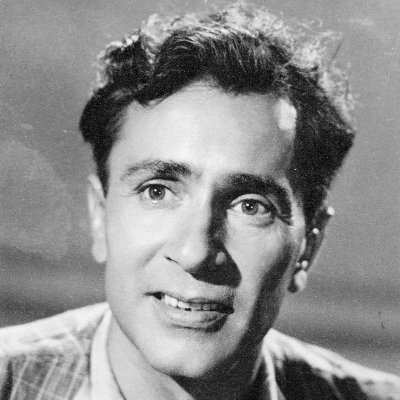



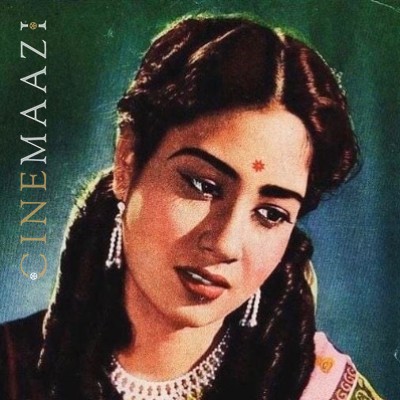

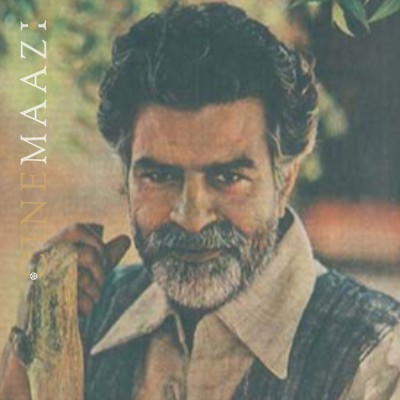
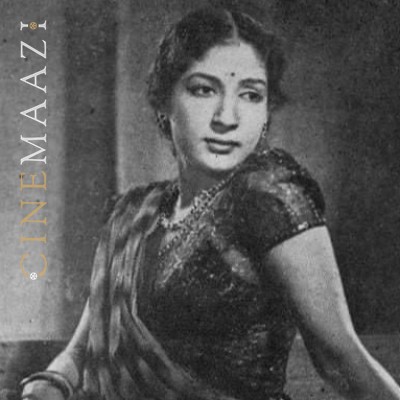


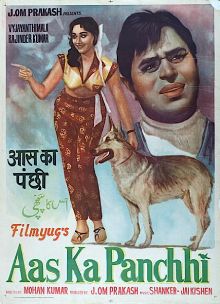



.jpg)



